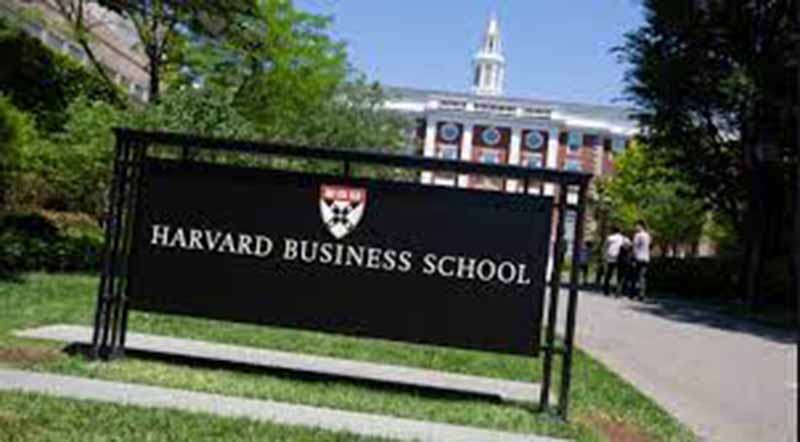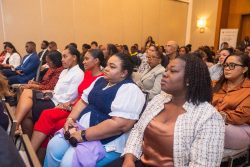President Irfaan Ali yesterday said that the government is seeking partnerships with universities to establish a biodiversity research centre in Guyana even as he boasted about the high forest cover.
This disclosure was made during the President’s keynote address at the Harvard Business School’s Virtual Faculty workshop on the microeconomics of competitiveness. At the time, Ali was speaking to the virtual workshop on the new Low Carbon Development Strategy (LCDS) 2030 programme.
President Ali stated that the government is open to working with the international community as it relates to applied research and development as part of the LCDS. He noted that the authorities are able to establish an international centre for biodiversity research.
In order to have this, Ali added that they are looking to have partnerships with universities and research organisations to ensure that the centre is at the cutting edge with a focus on eco-system services, forest and biodiversity.
“At this point I wish to extend to Harvard University and the network of universities and research organizations in attendance today to work with us in this area of ecosystem services as we move to implement LCDS 2030,” the President said.
With that, the president went on to tell the workshop that Guyana has maintained the second highest percentage of forest cover on earth at some 85% amounting to some 18 million hectares. It was stated that Guyana’s forests store almost 20 billion tonnes of carbon dioxide.
This, he said, can be converted into a competitive advantage and become a revenue earner which can transform the economy as part of the strategy. Ali went on to add that Guyana’s eco-system provides considerable economic value to the world.
This economic value, the president stated is not realized in monetary terms and is only derived from clearing for mining, agriculture and other uses. “It is unfortunate that the world’s tropical forests are worth more dead than alive, 16% of global greenhouse gas emissions comes from deforestation. Since 2009 Guyana set out to address this issue as part of our effort to tackle climate change and create a new space for competitiveness in marketing eco-system and forest services globally,” he stated.
Speaking about the country’s natural resources, the head of state contended that the potential to earn in the forestry sector is tremendous as Guyana has in excess of 1,000 species. To this end it was indicated that the volume of production for 2021 in the sector was estimated at 340,000 cubic meters.
This, he highlighted, is way below the annual allowable cut which is 1.2 million cubic metres and demonstrates how sustainably the resource is being managed.
President Ali said, “Guyana remains well below our annual allowable cut for the sector, as a result of the mechanisms we have put in place to manage the production and governance of the forestry sector, we are excited for our efforts and leaderships in continued sustainable management from various institutions and organisations.”
The head of state said that in the natural resources sector, there has also been growth in the extractive industries as for the period of January to September this year approximately some 20,000 metric karats of diamonds have been exported. For the period of October to December, it is estimated that there will be exports of some 7,500 more metric karats.
Development
During his address to the Boston, Massachusetts, US-based institution, he said that Guyanese are set to benefit from the country’s expected prosperity even as he spoke on the government’s agenda to build an equitable society.
He noted that an essential element of the government’s agenda for transforming Guyana is building an equitable society. “One in which every Guyanese person irrespective of the region in which they live, irrespective of their ethnic or religious background would have an equal opportunity and stake in the development of our country,” Ali said.
To achieve same, he contended that it is necessary to have a good framework for development. The president highlighted that education is a key part of this development. As a result, it was noted that the government will ensure that the population benefits from both primary and secondary education by providing feeding programmes, uniform programmes and more so as to ensure attendance at schools.
Ali told the workshop that the administration is also working to remove the gap in the quality of education between urban and rural areas and provide better access to tertiary education. As such he said it was the government’s intention to have free university education and added that the 20,000 online scholarships programme that has been established has seen some 6,000 students studying at universities around the world.
With the focus on education, the administration is also interested in establishing an oil and gas institute.
He told the virtual gathering that the government is also placing emphasis on delivering “world-class health care” to Guyanese.






